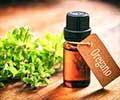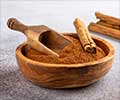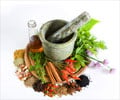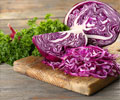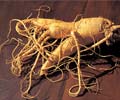Herbs That Help Prevent Cancer
A number of studies from all over the world are pointing to culinary herbs as sources of anti-oxidants and other substances that have anti-cancer characteristics. The scientists found that these herbs help reduce cancer risk and some can even modify tumor behavior.
Some of these cancer preventing herbs are discussed here.
Oregano: Amongst the dried herbs, oregano has perhaps the highest anti-oxidant levels. Rosmarinic acid is the compound in oregano that has the strong anti-oxidant activity. An Indian study reported that oregano supplementation of 40 mg per kg of body weight had a modulatory role on tissue lipid peroxidation in colon cancer-bearing experimental rodents.The dosage for human beings has not yet been determined, but then, how much of oregano would you need to flavor your dish!
Thyme: Thyme is sweeter and milder than oregano. Thyme as a dried herb contains very high levels of anti-oxidants in the form of rosmarinic acid and phenolic compounds such as thymol and carvacrol. A Turkish study supported by Hacettepe University Research Foundation suggested that these phenolic compounds at concentrations below 0.2 mM and 0.1 mM respectively can significantly reduce the oxidative DNA damage and thus prevent the development of any type of cancer.
Cilantro: Cilantro or, more commonly, coriander is another potent herb that has anti-cancer properties. The prevalent anti-oxidants in cilantro are beta-carotene, quercetin and rutin. This herb, normally used in chelation therapy for people suffering from lead poisoning, helps remove free radicals by getting rid of the heavy metals in your body. Dr. Yoshiaki Omura from the Heart Disease Research Foundation, New York, NY, USA, has actually found that fresh cilantro removes heavy metals – and with it the free radicals too – from the body in less than 2 weeks.
Basil: Basil is well known for its medicinal value. Apart from having anti-inflammatory, blood pressure lowering, and nervous system stimulating properties, this popular herb has been found to have chemo-protective potential for colon cancer. In fact, a study found that basil played a significant role in reducing colon tumors in experimental animals. However, no human clinical trials have been conducted to confirm this experiment.
Garlic: The National Cancer Institute (affiliated to the NIH) recognizes garlic to have potential anticancer properties. The sulphydryl compounds in garlic have the ability to block the formation of cancer -causing substances. Several population studies have shown an association between increased garlic consumption and reduced risk of cancers of the stomach, colon, esophagus, pancreas, and also breast cancer. A study has found that garlic intake of 10 g per day could reduce the risk of prostate cancer by 50 percent.
Ginger: Some pungent substances present in ginger rhizome have anti-oxidant and anti-inflammatory activities. The anti-cancer properties of ginger are attributed to phenolic substances such as 6-gingerol and 6-paradol and other constituents such as shogaols and zingerone. A study published in the journal Biochemical and Biophysical Research Communications reported that 6-gingerol can reduce viability of gastric cancer cells and limit the spread of cancer.
Turmeric: Although turmeric is promoted mainly as anti-inflammatory herbal remedy, some scientists believe that the anti-oxidant curcumin present in turmeric may prevent or slow the growth of many cancers including tumor of esophagus, stomach and intestine, breast cancer and also skin cancer in experimental animals. However, clinical research is needed to determine its efficacy in cancer prevention and treatment in human beings. But, the laboratory studies have confirmed the cucumin interferes with several molecular pathways involved in cancer development, growth and spread. Further, a study found that ethanolic extract of turmeric produces remarkable symptomatic relief in patients with external cancerous lesions. There was a reduction in smell in 90 percent of cases and reduction in itching in almost all cases.
Green tea: Polyphenols in green tea and sometimes black tea, help kill cancerous cells and stop their progression. Mayo Clinic studies have revealed that a substance called epigalloacatechin gallate (EGCG) in green tea reduces the number of leukemia cells in patients with CLL (chronic lymphocytic leukemia), a form of blood cancer. Similarly, another study found that women who drank powdered green tea were less likely to develop bladder cancer. Again, men who drank the most green tea were 37 percent less likely to develop pancreatic cancer. A large Chinese clinical study found that the risk of prostate cancer declined with increasing frequency and quantity of green tea consumption. However, scientists found that green tea could reduce the chances of recurrence of breast cancer but it could not prevent or improve breast cancer.
Maitake mushroom: Maitake is an edible mushroom native to the mountains of northeast Japan. Its active ingredient is a polysaccharide called beta glucan. Maitake mushroom extract is said to limit or even reverse tumor growth. It also enhances the benefits of chemotherapy and lessens the side effects of anti-cancer drugs. It acts by activating certain cells and proteins that attack cancer, T-cells and interleukin-1 and interleukin-2. The daily dose of dried mushroom is between 3 to 7 g. Maitake may not be suitable for those on hypoglycemic medication.
Cinnamon bark: Cinnamon has anti-oxidant properties that can significantly decrease lipid peroxidation that lead to cancer. Further, cinnamon bark oil has been found by researchers to be one of the most effective inhibitors of bacteria, such as Helicobacter pylori, that facilitate the invasion and progression of cancer. However, high amount of coumarin present in cinnamon can damage liver tissues. Although there are no reports of coumarin related tumor formation, high levels of coumarin did trigger cancer in experimental rodents.
As we can see, herbs and other anti oxidants are not only very helpful in preventing cancer and in some cases inhibiting progression of cancer, they also help with overall wellness by improving the immune system. But be sure to consult your doctor before taking any of these herbs for preventing or treating cancer.

